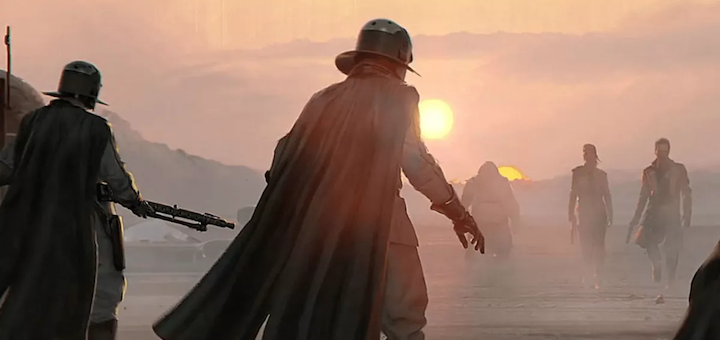I think back to the biggest, most important moments in my life and career, and every time I have a life altering success I can directly trace it to a mentor. I failed Biology 101 twice as an undergrad. I got a C+ in my freshman English class. Somehow I managed not only to get an undergraduate degree, but I got a master’s. And then I got a PhD, from one of the best programs in the country. And now I have a tenure track job. Tiny, insignificant me. From Sauk Rapids Minnesota. But it’s not “somehow I managed.” I only am where I am today because a handful of people believed in me. I know that sounds cheesy, but it’s even more than belief. It’s belief that my work was important and worthy, it’s protecting me from criticism as I shape my ideas and standing by me when I make a mistake, and it’s being the scholar/person/mentor I want to emulate.
Mentors aren’t only important for academia, jobs, and careers, but they’re important in gaming as well. In fact, I think mentorship is one of the most frequently overlooked parts of gaming, a part that has an immense impact on how one plays, why one plays, and if one plays. To this end, I want to talk about ways mentors can change gaming for the better and some tips on how we can all be good mentors and stewards of gaming.
1. Teaching the game
One of the most meaningful things you can do for another person is teach them how to play a game. Game theorists and behavioral scientists say that gaming together can build a unique bond with another person. Even if they beat you badly, you still have a bond and a trust that goes deeper than someone you had a simple conversation with. Why is this? Because you have to agree to a set of rules to play a game. Each player must agree not only to the rules, but to certain etiquette: no cheating, no poor sportsmanship, and no spoilsporting. Teaching someone a game goes even further. It takes patience and knowledge. If anyone has had a friend teach them a really complicated board game (Dead of Winter, for example), you know that it takes patience, trust, and a positive attitude to learn a game. But all parties are saying that the fun that will be had is worth it. Even if the explanation is long, complicated, frustrating, or whatever, we all agree to investing in future play experiences.
In addition to creating bonds, mentors also foster positive relationships through teaching how to play a game by proclaiming implicitly that gaming and play is a worthwhile activity. As a teacher, I constantly encounter students who think that gaming is something to be ashamed of. Teaching someone how to play a game allows two people to come to a mutually understanding that gaming is fun and something to be shared. Awwwwwww.
2. Taking time to play
Setting a online gaming date, agreeing to buy a game to play online with friends even if it’s not your cup of tea, and planning board game nights all do one thing: they say that you care about your friends enough to take time to spend with them. Much like the family dinners of the 1950s, game nights have become a bonding activity for my family. Several members of my family got so into Settlers that we played the board game together and played online together constantly before the app came out. We still to this day spend time playing it together. In life when work, kids, activities, puppies, and obligations overwhelm you, taking the time to play with others can be so impactful.
3. Speaking up
As we all know, sometimes the gaming industry is full of vitriol, violence, insults, and aggression. I constantly hear gaming friends say things like, “I totally raped you!” (as in beat you). A good mentor can call out things like that in a way that gets the point across without making the person feel attacked. The tenor of the gaming community is so negative that otherwise smart people will say and do things that are offensive that they would never say in another context. Being a mentor can mean pointing these things out, not to take the fun away, but to make the environment better for all. We need to stop acting as if it’s ok to scream racial and gender slurs because it’s a game or because we are in the heat of a contest. Mentors can help with that!
4. Respect all play styles and preferences
Button mashing, studying meta-narratives, or focusing on story. All of these, and others, are interesting and diverse play styles and preferences. While it may be frustrating to be a quest completer working with a narrative reader (Sam!), it’s important that we work to play with various play styles. I’m not saying this for some hippie reason, but because innovative styles of play can come from diversity. League of Legends sees this happen all the time. When players follow the meta too closely, innovative play only comes from a few top players while everyone else follows the “best practices.” Respecting how others players play, particularly allowing space for free play outside of the meta, can help all players feel welcome while innovative play.
What are some ways that you foster a more positive gaming community? Do you have any games where a mentor really stepped in and helped you? Or maybe a game that you quit because no one took the time to teach you how to play? Feel free to add to the comments!




